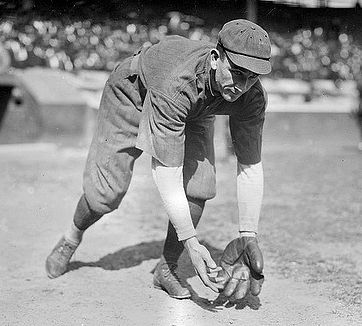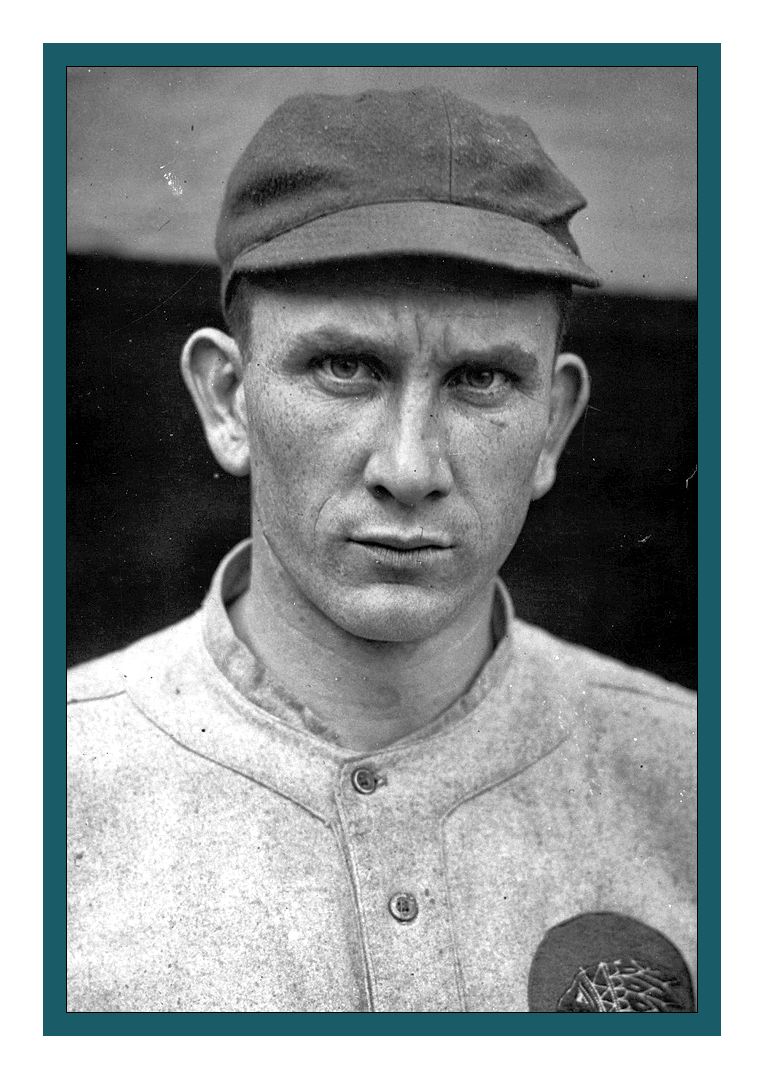|
“FENWAY'S BEST PLAYERS”  |
|||||
Standing only 5'5" and weighing a good deal less during the Deadball Era than his listed playing weight of 155 lbs., Rabbit Maranville compiled a lifetime batting average of just .258 and is known as much for his zany escapades and funny stories as for anything he accomplished on the diamond, but his outstanding glove work kept him in the big leagues for 23 seasons and eventually earned him a plaque in Cooperstown. Maranville improved his batting average to .283 during his second year at New Bedford, and the Boston Nationals purchased his contract for $1,000. Reporting to the club on September 4, Rabbit got into 26 games and made 11 errors while batting .209. Maranville sat the bench during the 1913 exhibition season until the Braves arrived in Atlanta on Easter Sunday. After going to church that morning, he put on his uniform in his hotel room and boarded the team bus. Maranville picked up three hits against Christy Mathewson on Opening Day as the Braves won, 8-3. He went on to hit .247 in 143 games that season and remained the regular shortstop for Stallings' entire tenure in Boston.
Maranville appeared in all 156
games during the miracle season
of 1914, driving in 78 runs out
of the cleanup spot even though
he batted only .246. He came up
with many big hits during the
Braves' pennant drive, but none
was more important than the
game-winning home run he belted
in the 10th inning on August
6--even though he was suffering
from a severe hangover from
drinking too much champagne at a
dinner party the night before.
|
|||||

